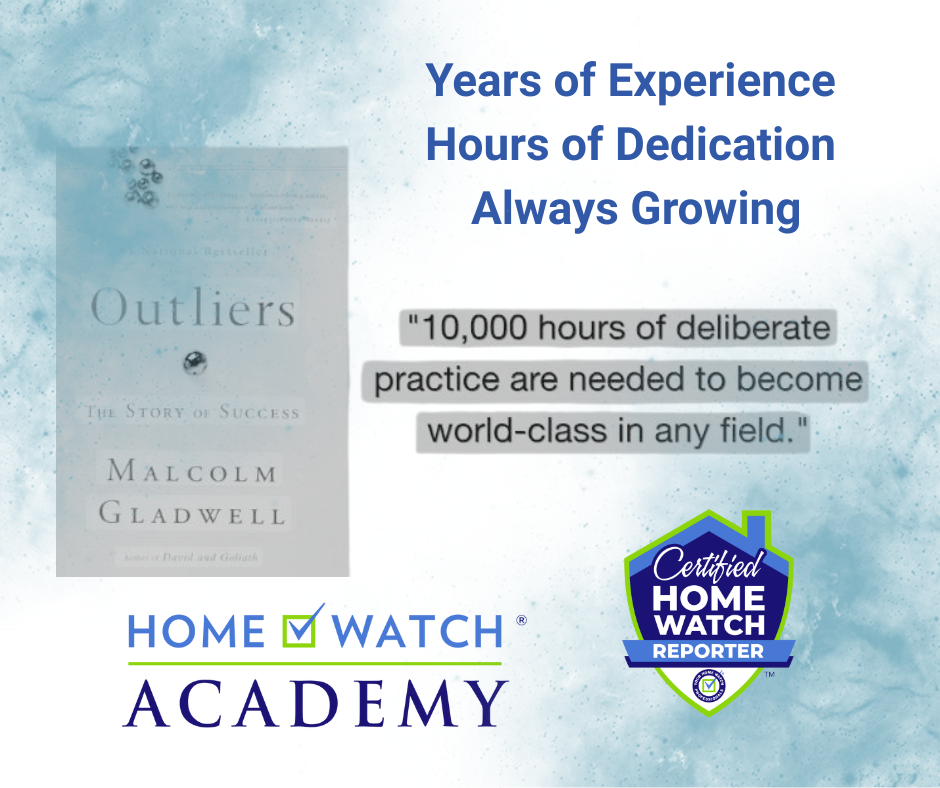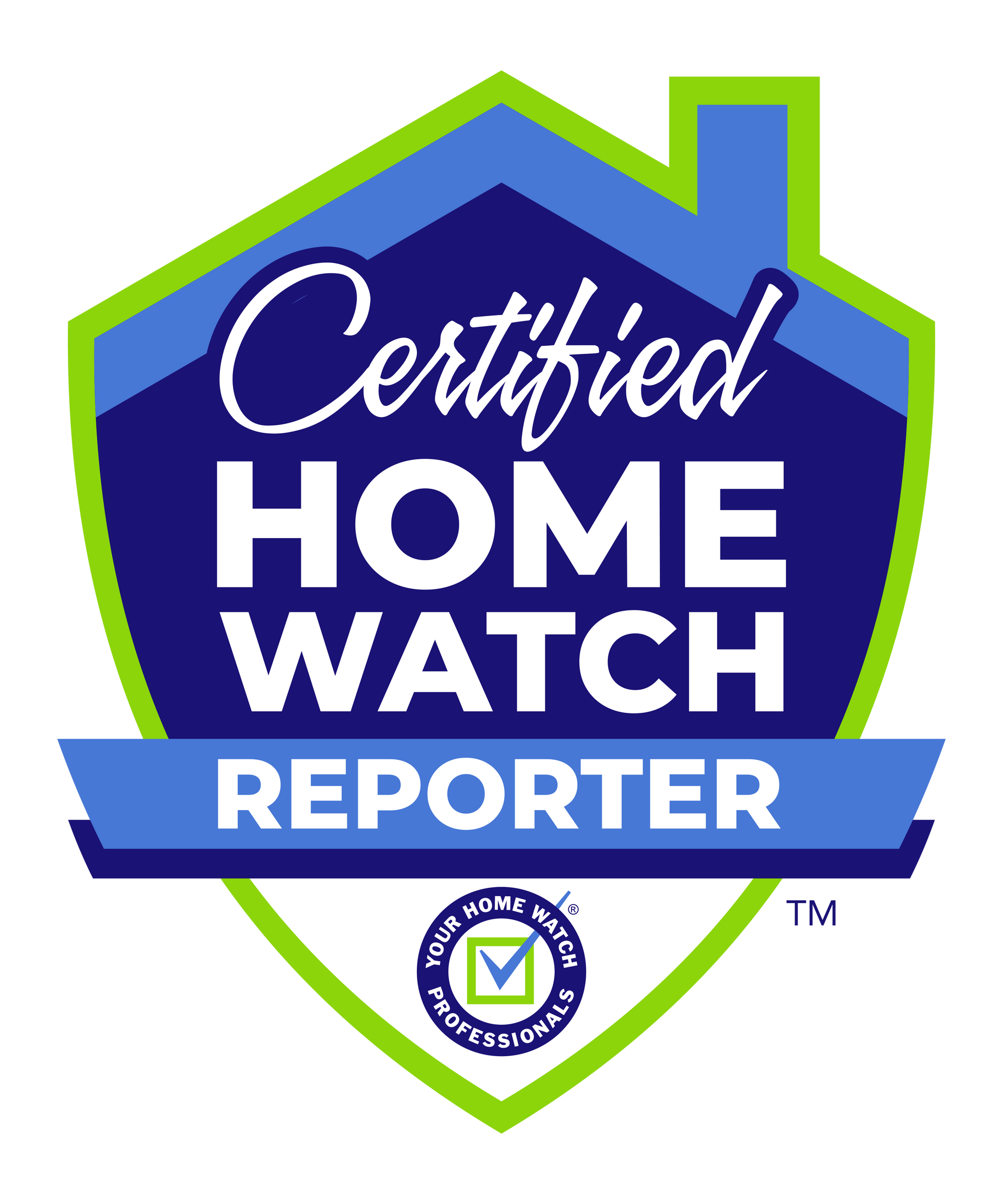Beyond 10,000 Hours: Why Experience Still Sets the Standard in Home Watch Training
July 5, 2025
Diane Pisani
Beyond 10,000 Hours: Defining an Industry

That concept resonates with me deeply because, since 2008, I’ve dedicated my professional life to the Home Watch industry. Over 17 years, I’ve invested far beyond 10,000 hours—not just teaching, but learning, refining, and innovating.
For 9 of those years, I was the first and only person offering formal Home Watch training. There were few industry standards, no playbooks, and no roadmaps. I help create them. Along the way, I introduced the jargon, nomenclature, and slogans that are now widely recognized across the industry. Phrases like “Trained – Tested – Trusted” and “The Difference Between Damage and Disaster” didn’t exist before— It was part of building a foundation for Home Watch to grow into a respected profession.
Today, there may be others entering the Home Watch training space. I see that as a reflection of how much the industry has grown, and I’m proud to have contributed to that growth. But I also know this: true expertise isn’t built overnight. It’s built through real-world challenges, continuous learning, and a track record of helping others succeed.
For me, mastery isn’t something you reach and check off a list. It’s a mindset—staying curious, staying relevant, and staying dedicated to those you serve. It is a true honor, privilege, and responsibility that I take very seriously.
If you’re exploring a future in Home Watch, my advice is simple: Find a mentor who hasn’t just read about the 10,000-Hour Rule but has lived it. In this industry, experience isn’t just valuable; it’s what separates those who truly serve from those who simply show up.
After all, it’s not just about logging hours. It’s about what you do with them.
Always grateful,
~Diane








